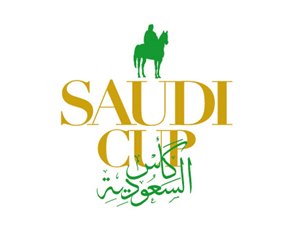Saudis Plan Announcement of Lucrative New Race


Saudi sports officials are set to announce a new international race, designed to be the world's richest, at an Aug. 7 news conference at Fasig-Tipton in Saratoga Springs, N.Y.
Invitations to the announcement did not specify the purse amount or distance of the race, dubbed the Saudi Cup.
"It will be the world's most valuable horse race and will be run in Riyadh on Feb. 29, 2020," said Harry Herbert, Saudi Cup Global Ambassador and a prominent figure in British racing.
Prince Bandar bin Khalid Al Faisal, chairman of the Jockey Club of Saudi Arabia, is set to attend the announcement. Organizers said the race will be conducted on dirt, making the announcement during the Saratoga Race Course meet appropriate.
While details were closely held, speculation dating back more than a year has the race at 1 1/4 miles on the sandy track at King Abdulaziz Racecourse in Riyadh, scheduled between the Pegasus World Cup Invitational Stakes (G1) at Gulfstream Park in January and Dubai World Cup night at Meydan in late March.
When the idea was floated in the spring of 2018, Saleh bin Ali Al-Hammadi, the director general of the Saudi Arabian Equestrian Club, was quoted by Arab News as saying the plan was to create the world's richest race, eclipsing the $16 million purse of the 2018 Pegasus.
Word that the race will be on for 2020 began to surface during Royal Ascot, when Amir Abdulaziz, founder and chairman of Phoenix Thoroughbreds and a native of Bahrain, mentioned it while celebrating Advertise's victory in the Commonwealth Cup (G1). The new race, he said, will make it more challenging to place the world's top horses early in the year.
Abdulaziz this year announced his intention to contest another new race, the inaugural running Nov. 22 of the Bahrain International Trophy, as a lead-in to the Dubai Carnival.
Herbert indicated the decision to announce the event at Saratoga targets the world's top dirt horses.
"Since it will be a dirt race, His Royal Highness thought it most appropriate to announce the details at Saratoga," Herbert said. "The aim is to outline the plans for the race and to talk a little about the history and potential of racing in Saudi Arabia."
The year-long delay in announcing the Saudi race reflects the difficulty of organizing and selling a new venture in surroundings unfamiliar to much of the racing world. Among a plethora of issues to be addressed are transport, housing, bedding and feed for the horses, and accommodation for traveling stable staff, many of them women. While the Saudi racing infrastructure is in place, it has not been tested at the level anticipated for the Saudi Cup.
Trainer Bob Baffert, an early and highly successful supporter of the Dubai World Cup, said the situation in Saudi Arabia is significantly more challenging than Dubai in 1996.
"In Dubai," Baffert said, "you had a good idea what the track was like, and there was an established international team involved in planning and running the race. A lot of those questions still have to be answered about Riyadh."
Asked whether he or his owners had been approached about the race or asked to participate, Baffert demurred.
"I'm just trying to get to the Whitney right now," he said, referring to the Aug. 3 Whitney Stakes (G1) at Saratoga.
"But when you put up $20 million, you're going to get good horses in the starting gate, no matter what," Baffert added, volunteering that figure. "And when you put up that kind of money, it helps convince owners it's worthwhile to buy good horses. You've got the Breeders' Cup and Dubai and the Pegasus and now this. It makes it easier."
A new race between "World Cups" however, could complicate things for owners and trainers. The four weeks between the Gulfstream Park race and the presumed target date in Saudi Arabia could be problematic.
The proximity of Dubai to Riyadh might make it more attractive to target both those races, although Baffert warned, "I hear the Riyadh track is very sandy and deep. I don't know if you'd come back in four weeks after racing over that."
